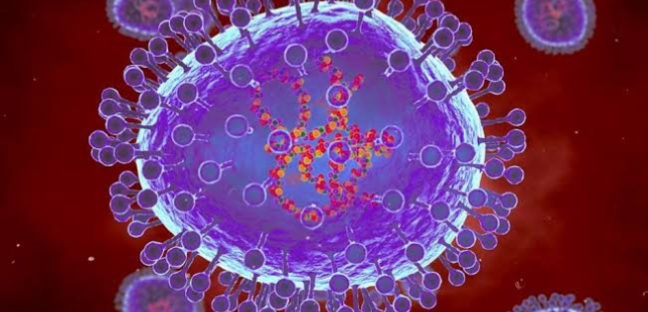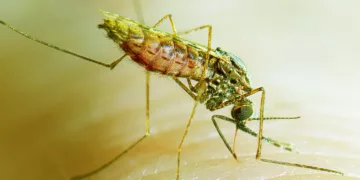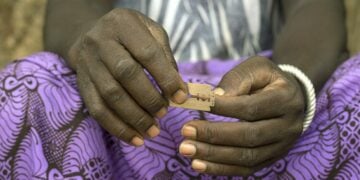As the country braces to surmount the challenges posed by a potential Human Pneumovirus (HMPV) outbreak, the federal government has confirmed an outbreak of Highly Pathogenic Avian Influenza (AI), commonly referred to as bird flu, in Kano State.
The disease, which affects various bird species, including layers, ducks, guinea fowls, and turkeys, has raised concerns over its potential spread in the region and beyond.
A circular signed by Dr. Taiwo Olasoju, on behalf of the Chief Veterinary Officer of Nigeria, highlighted the imminent risk of transmission during this period.
On December 19, 2024, a case of suspected AI disease was presented to Gwale Veterinary Clinic. The affected farm is a multi-species backyard poultry with a variety of birds, including chickens, ducks, and guinea fowls, located at Hausawa quarters in Gwale LGA.
Further history revealed that the birds started dying after the farmer added a new male duck bought from the Janguza live birds’ market on December 12, 2024.
The state’s Commissioner for Agriculture and Natural Resources, Dr Danjuma Mahmoud, in a statement, said that initial symptoms of the disease were observed on Dec. 18, 2024, with affected birds showing signs of sudden death, respiratory distress, high morbidity and mortality.
Mahmoud said that 35 birds had died of the disease, while 16 others were slaughtered due to the outbreak.
The country is not new to the virus as Nigeria’s first outbreak of bird flu was confirmed in January 2006, the first epidemic in poultry in Africa, killing millions of birds while millions more were culled to contain its spread.
We recall that the virus was discovered on Sambawa farms (Igabi Local Government), Kaduna State, on 8 January 2006 and confirmed by the OIE World Reference Laboratory at Padova, Italy, on 7 February 2006.
In 2006, 312 cases and in 2015, 256 outbreaks of the highly pathogenic avian influenza were recorded in the country.
The economic and livelihood losses were huge as the disease spread all over the country, with 100 per cent mortality in many cases. The estimated economic cost of the bird flu outbreak is N9 billion (about US$32 million), with people losing investments, livelihoods, and jobs.
Scientifically known as Avian Influenza and the pathogenic form as Highly Pathogenic Avian Influenza, Bird flu is a disease in birds (specifically poultry) caused by an influenza virus and is highly pathogenic, meaning it causes tissue and organ damage in the host and can kill more than 75 per cent of the infected flock.
Highly pathogenic avian influenza H5N1 virus infections have infected more than 880 people with about 50 per cent case fatality globally.
According to experts, symptoms in infected poultry include sudden death, respiratory distress, cough and haemorrhages in tissue and organs.
It is zoonotic and, therefore, can be fatal for humans too, including other animals like pigs, horses and dogs.
However, Nigeria is the most affected African country in terms of the frequency and burden of avian flu, making it the destination “sink” of the strains circulating in Europe at any given time.
Bird flu is mostly introduced into Nigeria through the presence and activities of wild birds, as evidenced in the 2015-2016 outbreak, during which four virus introductions into Nigeria, likely from East Europe, were identified.
Bird watchers and ornithologists, (scientists specialising in the branch of zoology that deals with the study of birds), have found that migratory birds from Europe move into Nigeria every year during the cold harmattan season (November – February), which is the peak time for avian flu outbreaks.
However, experts warn that the disease may become endemic in Nigeria if circulation continues and the same strain is detected. According to them, if a disease is constantly circulating in reservoir hosts, it will eventually spread to poultry and humans.
While calling for biosecurity measures to be stepped up, the government may have to consider other measures.
This may include controlled and regulated vaccination using vaccines used in Egypt, China, and Indonesia with a mixture of success and failure, even as vaccines only reduce the impact of the disease but do not prevent infection or re-infection.
We acknowledge that we can’t change birds’ routes or habits, but it is up to Nigerian authorities to ensure it keeps its local birds and people as safe as possible.
This would include surveillance of wild birds at wetlands and monitoring of viral infections because early detection is vital for early warning, risk analysis, and infection control.
Those in the agricultural sector also need to introduce effective control measures at live bird markets and improve the way poultry is traded more broadly.
Measures would include restructuring the live bird markets, discouraging the mixing of species, and introducing plastic cages and crates that can be easily cleaned and disinfected.
Frequent cleaning, disinfecting, and decontaminating live bird market environments is very important for disease containment.
Also, the federal government should, through its agency, the National Orientation Agency (NOA), create sensitisation and awareness to educate farmers and traders about the dangers of the virus and how to protect their flocks and for farmers to avoid mixing birds from different sources, especially during this time.
In addition, we call for closer monitoring of poultry populations to detect and respond to potential cases promptly.





